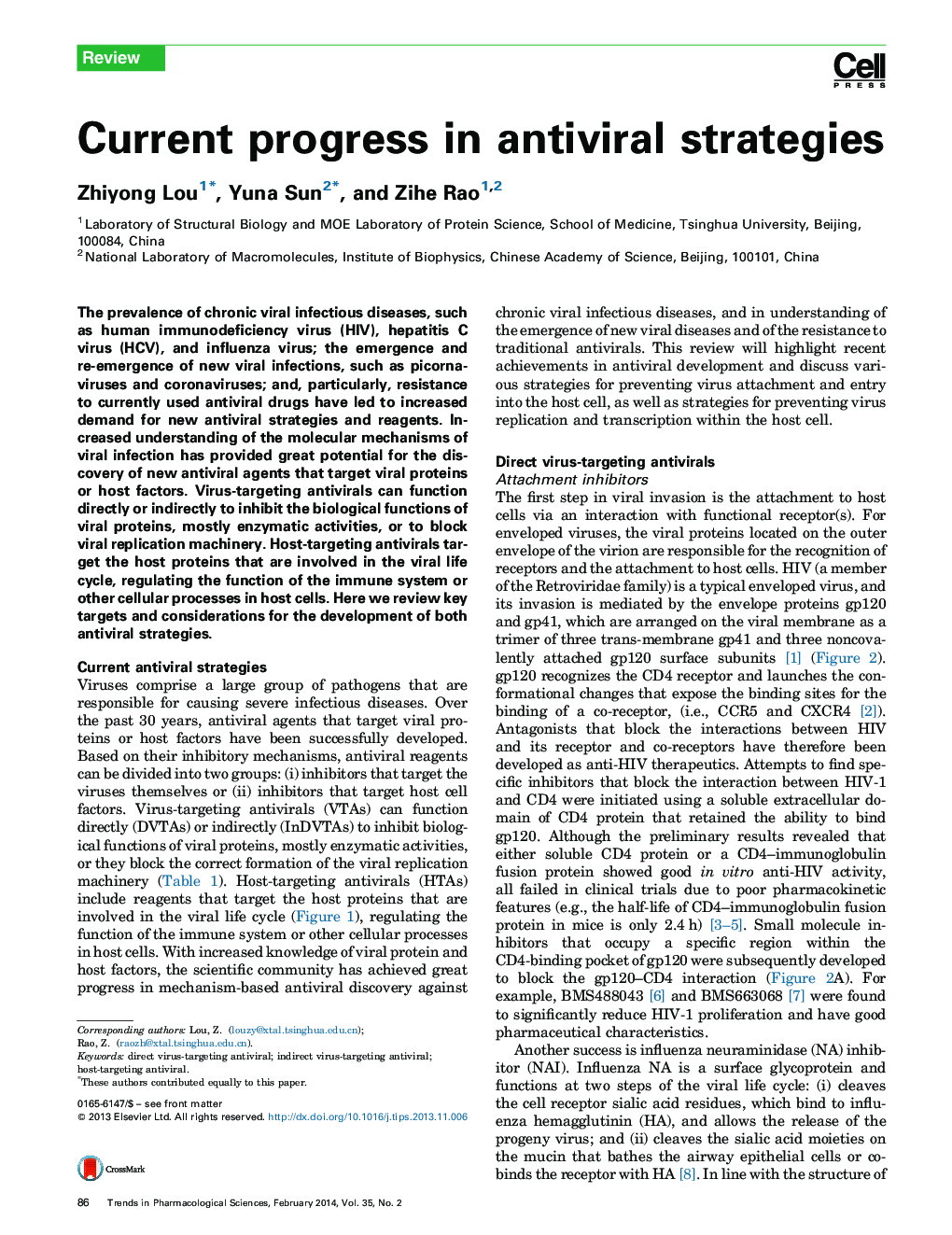| Article ID | Journal | Published Year | Pages | File Type |
|---|---|---|---|---|
| 2572950 | Trends in Pharmacological Sciences | 2014 | 17 Pages |
•Antiviral agents function as either viral targets or host factors.•Virus-targeting antivirals (VTAs) function through a direct (DVTAs) or an indirect (InDVTAs) method in the viral life cycle.•Host-targeting antivirals (HTAs) include reagents that target the host proteins that are involved in the viral life cycle.
The prevalence of chronic viral infectious diseases, such as human immunodeficiency virus (HIV), hepatitis C virus (HCV), and influenza virus; the emergence and re-emergence of new viral infections, such as picornaviruses and coronaviruses; and, particularly, resistance to currently used antiviral drugs have led to increased demand for new antiviral strategies and reagents. Increased understanding of the molecular mechanisms of viral infection has provided great potential for the discovery of new antiviral agents that target viral proteins or host factors. Virus-targeting antivirals can function directly or indirectly to inhibit the biological functions of viral proteins, mostly enzymatic activities, or to block viral replication machinery. Host-targeting antivirals target the host proteins that are involved in the viral life cycle, regulating the function of the immune system or other cellular processes in host cells. Here we review key targets and considerations for the development of both antiviral strategies.
